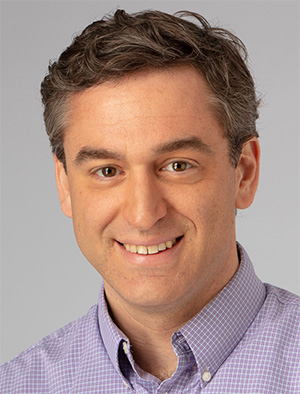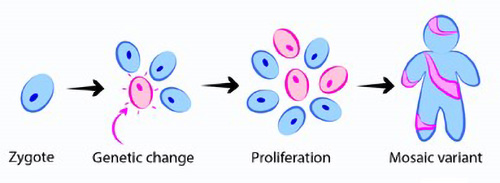James Bennett Receives $12.5 Million NIH Genome Research Grant Under SMaHT Network
 May 11, 2023 – Congratulations to Dr. James Bennett, principal investigator at the Center of Developmental Biology and Regenerative Medicine (CDBRM) at Seattle Children’s Research Institute, for his $12.5 million, five-year National Institutes of Health award supporting research in how the human genome changes within individuals over their lifetimes. This work is being done in collaboration with University of Washington Drs. Evan Eichler, professor of Genome Sciences, and Andrew B. Stergachis, assistant professor of Medicine, Division of Medical Genetics.
May 11, 2023 – Congratulations to Dr. James Bennett, principal investigator at the Center of Developmental Biology and Regenerative Medicine (CDBRM) at Seattle Children’s Research Institute, for his $12.5 million, five-year National Institutes of Health award supporting research in how the human genome changes within individuals over their lifetimes. This work is being done in collaboration with University of Washington Drs. Evan Eichler, professor of Genome Sciences, and Andrew B. Stergachis, assistant professor of Medicine, Division of Medical Genetics.
The grant is a part of a $140-million, 5-year effort led by NIH under the newly developed SMaHT (Somatic Mutation across Human Tissues) Network. Bennett and collaborators will sequence DNA and RNA from the same 10 tissue samples (including heart, brain, liver and lung) from approximately 50 individuals to better understand how the human genome changes over time, a process known as somatic or post-zygotic mutation.
Human development begins with union of sperm and egg to generate a single cell. An individual consists of trillions of cells, all descended over time from this original cell. Each time the cells divide, there is a possibility of a DNA copying error — a somatic mutation — which alters the DNA. Although most of these somatic mutations are of no consequence to human development and disease, some are, and these types of mutations are generally not detected by current DNA sequencing techniques.
This research aims to define the typical somatic mutation over a lifetime, across the entirety of the human genome, and determine if it varies across different tissues or in certain places in the body.
“Somatic mutation is vastly underappreciated,” said Bennett, who is also an associate professor in the Department of Pediatrics, Division of Genetic Medicine, at the University of Washington. “This work has major implications for genetic diagnosis of human disease.”
 The mutation of the single cell – the zygote – can vary across different tissues resulting in a mosaic variant. Illustration by Dana Jensen, Bennett Lab
The mutation of the single cell – the zygote – can vary across different tissues resulting in a mosaic variant. Illustration by Dana Jensen, Bennett LabBennett said diseases thought to be “non-genetic” might actually be genetic, but caused by mutations that arose from a DNA copying mistake after conception that are not present in every cell in the human body.
The research team believes the grant will help accelerate their research by leaps and bounds by providing the most complete picture of the human genome ever seen.
“It’s a huge honor and we are very excited,” Bennett said. “This is big, moonshot type of science.”
“Dr. Bennett has made the investigation of somatic mutation a focus of his research effort and I am delighted to see his expertise in this highly competitive area recognized,” said Dr. David Beier, center director for CDBRM. “I anticipate that his engagement with the larger medical genomics community will be very productive for himself, his trainees and his colleagues.”
Research is just getting underway — Bennett, Eichler and Stergachis are meeting with other institutions within the SMaHT Network to begin collecting new samples and develop the sequencing methods and analyses that will be shared networkwide.
“I am very excited about selecting tissue and donors,” Bennett said. “Will we pick older individuals? Will we pick heart tissue to study? What about individuals with a history of significant disease? I am looking forward to the new discoveries we will make with this opportunity.”
The project is funded by the NIH’s Common Fund. Learn more about the new Common Fund program here.
– Empress Rivera-Ruiz
